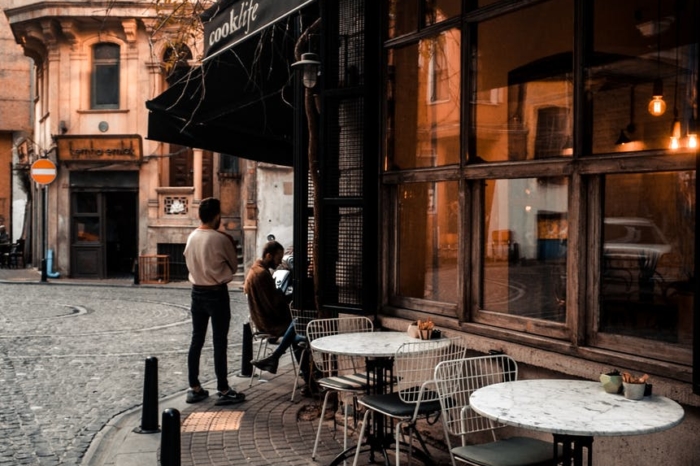Effects of Covid-19 on the Accommodation and Food Services Industry
Since March, lockdowns and safety regulations from the Covid-19 pandemic have dramatically affected the Accommodation and Food Services industry. The sector is predicted to lose at least 2.1 billion dollars in Massachusetts before recovering. These losses affect individuals, businesses, and Massachusetts’ economy as a whole.
Although businesses throughout the sector struggle, restaurants face an especially harsh impact. The Massachusetts Restaurant Association predicts that one-quarter of establishments (3600 of 16,000 total) will close due to Covid-19 due to various factors. Many restaurants, especially in the Boston area, rely heavily on business from college students and tourists, most of whom are staying home. The extent of this impact has been huge, considering restaurants make up nearly 60% of establishments and over half of the jobs in the Accommodations and Food Services sector.
Government efforts to protect restaurants had limited efficacy. For example, the Paycheck Protection Program went into effect weeks after businesses started failing and needing help despite giving restaurants slightly less than 10% of all loans. This resulted in about 50% of restaurants receiving aid from landlords. Restaurants have tried to adapt by increasing safety measures, partnering with local non-profits, and creating ad campaigns and shared gift cards for several establishments. Despite these efforts by businesses, travel restrictions, capacity limits, and distancing requirements, as well as government obstacles like permitting, sidewalk/outdoor use of space, and other items are still preventing restaurant recovery during this time. While some restaurants may serve food outside provided customers are able to social distance, only 20% of restaurants can offer outdoor seating because many do not own or lease land outside. Limited capacity (50%) also makes it more difficult for small businesses to make a profit from people dining out even if they may be able to offer outdoor seating. Some cities (Boston, Worcester, Springfield) are working to further accommodate restaurants, trying to allow them to use sidewalks for seating, but this is still quite limiting as space is restricted and the public is still wary of Covid-19 in most public settings.
Effects extend to the individuals working in the industry, as well. Under normal circumstances, the unemployment rate in the Accommodation and Food Services sector varies slightly (by 2-3%) seasonally, being its lowest in early fall and peaking in the winter. (In September 2019, unemployment in Massachusetts in this sector was at only 4.7% but by January 2020 it had risen to 6.2%.) This trend broke in the months following the coronavirus outbreak, with the unemployment rate rising from 5.9% in February to 37.3% in April (a difference of 31.4%). Since lockdowns started in March, 93% of Massachusetts restaurants have had to lay off and furlough employees, resulting in 87% of the 300,000 Massachusetts Accommodation and Food Services workers losing their jobs.
These layoffs have affected some regions more than others, with Cape Cod being especially devastated. 16% of Barnstable’s total jobs belong to the Accommodation and Food Services sector, as well as, 21.09% of jobs in Dukes, and 23.41% of jobs in Nantucket. These statistics are much higher than the average of about 10.5% in Accommodation and Food services across all counties in Massachusetts. Despite this, even in counties where jobs in this sector are not as large a proportion of total employees, the effects are still felt. In Middlesex, despite only 6.54% of jobs being in Accommodation and Food Services, 61,667 individuals in the county work in related industries. Similarly in Suffolk, 59,507 people work in the sector, but make up only 7.99% of the county’s total employment.
The impact of Covid-19 on the restaurant industry has been felt across Massachusetts. Thousands of establishments have closed and hundreds of thousands of individuals have lost jobs. Although some businesses are slowly recovering, many more have closed their doors permanently.
One of these restaurants is Bella Luna & the Milky Way in Jamaica Plain. Bella Luna first opened in 1993 in Hyde Park, before moving locations, and in its 27 years, it hosted dance parties, open mics, and community programs in addition to serving food. In late June however, the business owners announced in a Facebook post that the restaurant would be closing permanently due not only to financial issues but also the conflict between their business model and social distancing. “The mission of our business is to gather people together in groups, to foster social closeness – the opposite of social distancing,” the post read. “Also, the public health hazards of COVID-19 will exist for over a year, and without being able to operate at full capacity, our business is not financially stable.”
Darley Boit is a 2020 Roger Perry Summer Intern



